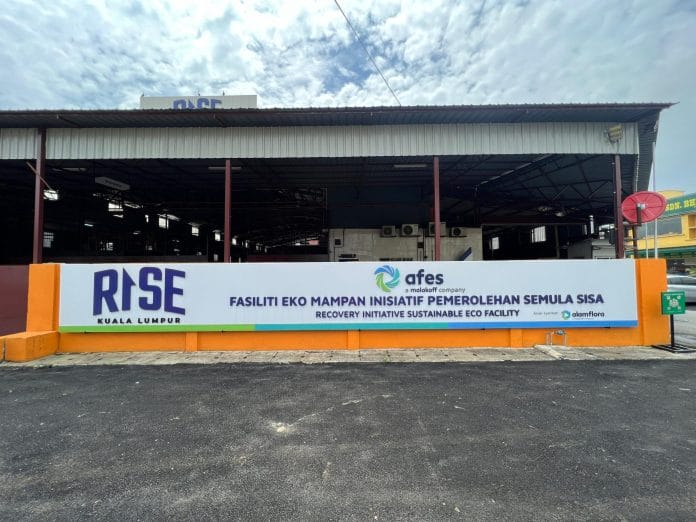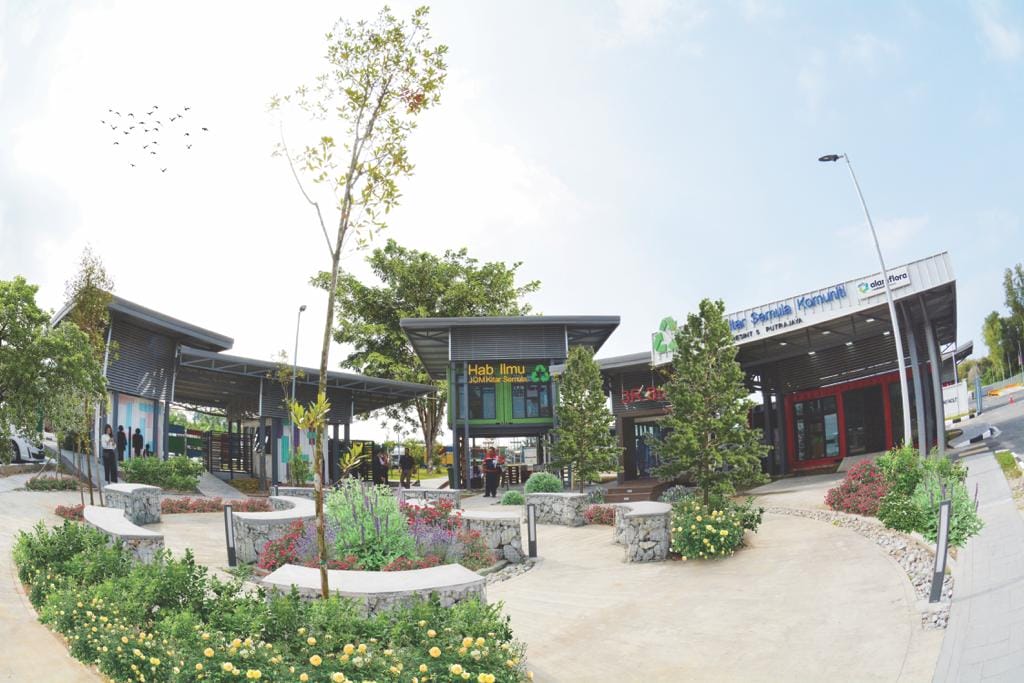The ever-present threat of climate change coupled with the rise in greenhouse gases have presented global challenges that require immediate actions by governments and all stakeholders.
Malaysia has reportedly announced the aspiration to achieve a net-zero greenhouse gas emissions target as early as 2050 and has joined the 2021 Global Methane Pledge that aims to reduce global methane emission by at least 30% from 2020 levels.
For individuals, we have a responsibility to be sustainable in our daily consumption but for larger scale efforts, one of the keys in reducing methane and carbon dioxide emissions is through solid waste management solutions.
It is also more urgent than ever as our landfills are overwhelmed. According to the Malaysian Investment Development Authority (Mida), by 2022, the amount of municipal solid waste (MSW) is expected to rise to 14 million metric tonnes annually, enough to fill the Petronas Twin Towers every week.
As the population grows, the amount of commercial and domestic waste will also rise. This calls for a more efficient and environmentally friendly way to manage waste.
This is where Malakoff Corporation Berhad (Malakoff) steps in. After undergoing a corporate rebranding exercise, the company has emerged as an important organisation that plays a pivotal role in the country’s environmental agenda.
With a tagline “Enhancing Life, Enriching Communities”, Malakoff has identified three business pillars: Malakoff Green Solutions, Malakoff Environmental Solutions and Malakoff Energy.
Through its Malakoff Environmental Solutions pillar, Malakoff is the only energy company that provides solid waste management and public cleansing, infrastructure cleansing and waste solutions, integrated facility management, recycling, marine and hazardous waste solutions, water desalination and waste-to-energy in the country.
The pillar is divided into three main segments: concession (solid waste management and public cleansing) which is managed by Alam Flora Sdn Bhd (Alam Flora), a wholly owned subsidiary of Malakoff; non-concession (including infrastructure cleansing and waste solutions) and WTE, managed by Alam Flora Environmental Solutions (AFES), a member of the Malakoff Group.
Reducing Waste with Minimal Impact on the Environment
Alam Flora is one of the largest concession holders of Malaysia’s national solid waste management and public cleansing privatisation project.
The company provides comprehensive waste management services to several concession areas in Peninsular Malaysia, among them are Kuala Lumpur, Putrajaya, and Pahang.
Operating within the Solid Waste and Public Cleansing Management Act of 2007, Alam Flora adopted various processes in overseeing the operations of collection, discarding and maintenance that are compliant with local and international standards.
Part of the company’s bigger agenda is to increase recycling capacity in line with national targets. One way that they achieve this is through Fasiliti Inovasi Kitar Semula (FIKS) in Putrajaya, a one-stop centre for the public to learn about recycling processes and waste management.
FIKS is the first-ever waste management and recycling education centre in Malaysia, with a recycling knowledge hub, mini library, recycling and buy-back centre and 3R boutique – which collects gently used clothing to be sold at reasonable prices with the proceeds going to charity.
Besides that, Integrated Recycling Facility (IRF) is also available at the centre, where all the recyclable materials are sorted and processed to end-user manufacturers to be reprocessed into secondary raw material and new products.
Apart from FIKS, AFES has also launched its Recovery Initiative Sustainable Eco-Facility (RISE Kuala Lumpur) on 15 September this year, in Gombak, Selangor to lead the way in implementing the circular economy model and commit to sustainability.
With advanced facilities and equipped with a semi-auto sorting machine, the facility receives different types of recyclable wastes from municipal solid waste, which will be repurposed to reduce its impact on the environment.
Supporting Sustainable Waste Management with Policies
Malakoff, through its subsidiaries, is also pushing for the government to introduce certain policies to have greater impact in its recycling and waste reduction efforts.
Policies and systems such as Extended Producer Responsibility (EPR) and Polluter Pays Principle (PPP) have been introduced in other countries including Japan and other European countries but have yet to be introduced in Malaysia.
EPR is a policy in which producers are held responsible for the products they manufacture once those products are no longer useful to consumers. On the other hand, PPP is implemented to ensure that the party responsible for producing pollution pays for the damage inflicted on the natural environment.
Other solutions include landfill tax (paid in addition to normal landfill rates), and the Pay-As-You-Throw (PAYT) system treats trash services like other utilities, where households pay a variable rate based on the amount of waste they generate, implemented through a flat fee for each garbage bag used.
Ultimately, the enactment of any policies or acts that reduce waste consumption, will reduce waste generation and from being sent to the landfills and most importantly, be more sustainable in the long term.
Having taken on the role, Alam Flora is steadfast in ensuring wastes are managed in a responsible manner. No easy feat!
Enriching Communities
In supporting one of the nation’s circular economy roadmaps, Malaysia Plastic Sustainability Roadmap 2021 – 2030, Alam Flora and AFES have implemented ingenious solutions in waste management.
Alam Flora has introduced 3R on Wheels which aims to create public awareness of recycling and, offering mobility for the public to take part in recycling activities either at public events or residential areas.
Meanwhile, the company has partnered with Nestle Malaysia through its subsidiary AFES to launch a kerbside programme in 15 townships in Greater Kuala Lumpur. This is to recover post-consumer packaging in one hand, and in the other, to enhance consumer awareness of how to recycle the packaging effectively.
They have also deployed its first on site Port Reception Facilities (PRF) in Malaysia to deal with marine waste from ship liners berthing at Northport.
Clearly, the group is knee-deep in solving the country’s waste matters in an efficient and sustainable manner with its end-to-end solutions.
Aside from the reduction of waste, Malakoff is also exploring the Waste-to-Energy (WTE) sector, as part of its sustainable practices.
WTE technology involves turning waste materials, particularly non-recyclable and biodegradable waste, into usable heat, electricity, or fuel. This reduces waste while offering economic and environmental benefits.
WTE minimises the release of methane into the atmosphere, which can be fatal at high levels as it can replace oxygen and cause asphyxiation.
Moving Forward with Sustainability in Mind
Through Malakoff Environmental Solutions business pillar, Malakoff plans to venture into local projects and expansion opportunities abroad, at the back of its commitment to maintain environmental sustainability and reducing carbon emission of its operation.
With its vast experience in waste management and environmental solutions, the company is looking to provide waste solutions to more businesses including commercial organisations and ports.
In October this year, Malakoff had proposed to acquire a 49% stake in a solid waste management company, E-Idaman Sdn Bhd to expand its waste management and environmental portfolio in the northern region of Peninsular Malaysia and establish a stronger foothold in this evolving environmental business landscape. The company is also planning to expand its services to new concession areas within Malaysia such as Labuan, Kelantan and Terengganu.
In addition to championing the municipal solid waste market through the expansion of business areas, there are several opportunities for Malakoff to grow into integrated hazardous waste operations which include the collection, treatment and disposal of medical, industrial and construction waste.
Medical hazardous waste, e-waste and construction waste are also expected to grow at a rate of 10%, 4.7% and 4.1%, respectively, providing Malakoff with growth opportunities in the non-concession segment.
A sustainably- driven company, Malakoff is committed to enhancing lives and enriching communities. Malakoff aspires and works towards driving change to realise the country’s ambitions of carbon neutrality and a circular economy by offering extensive skills in waste management and environmental solutions for a healthier and cleaner future for Malaysians.










